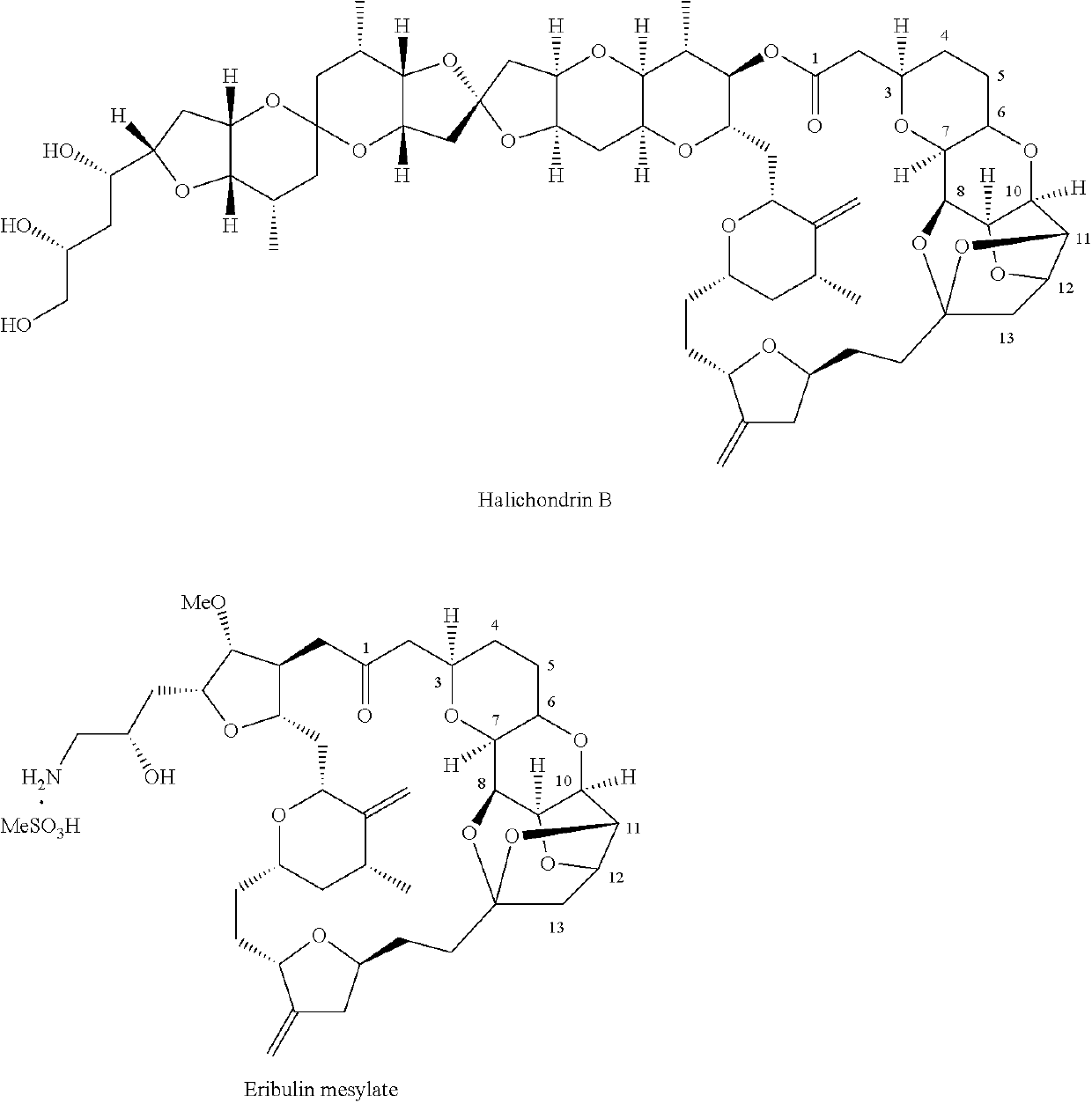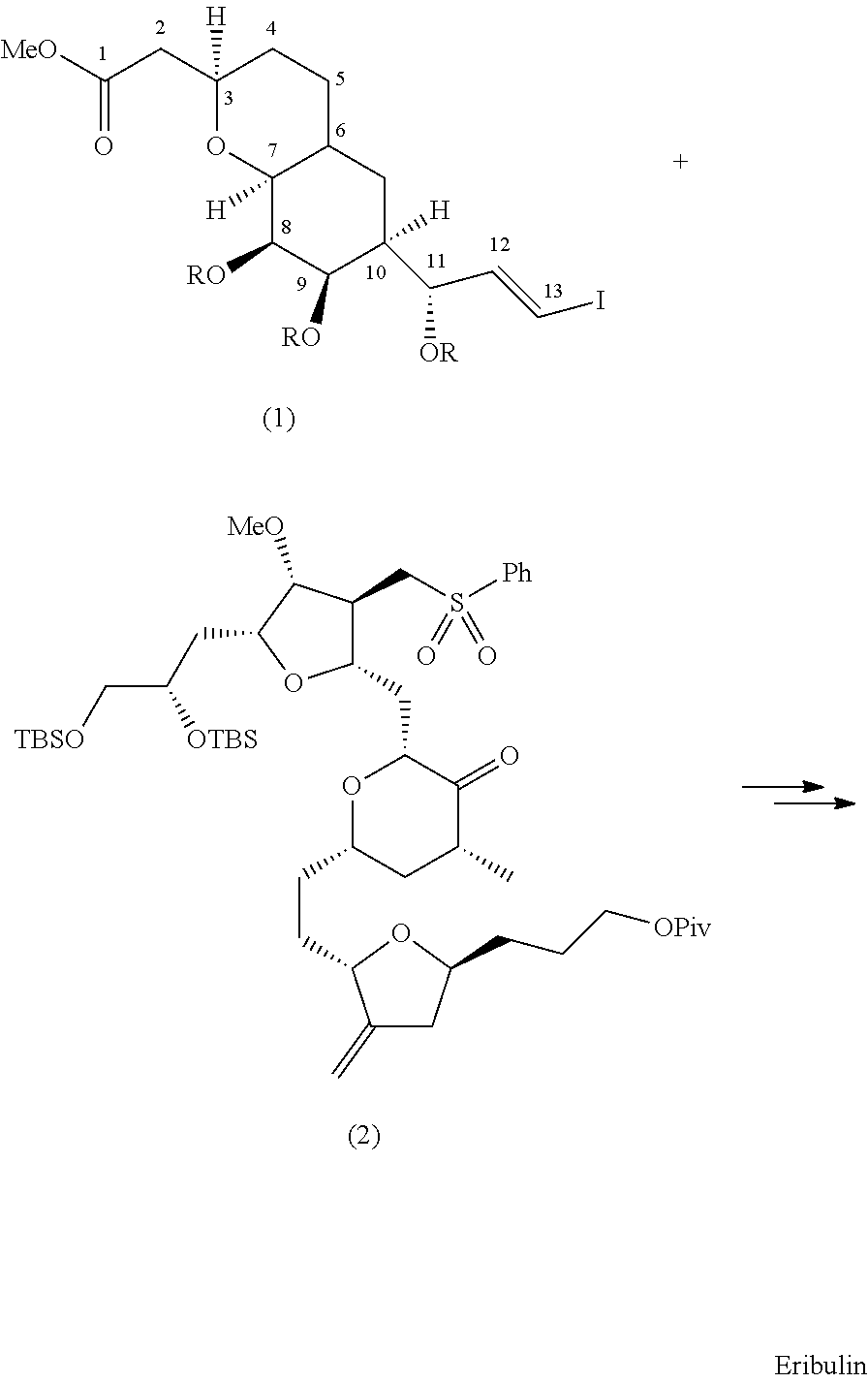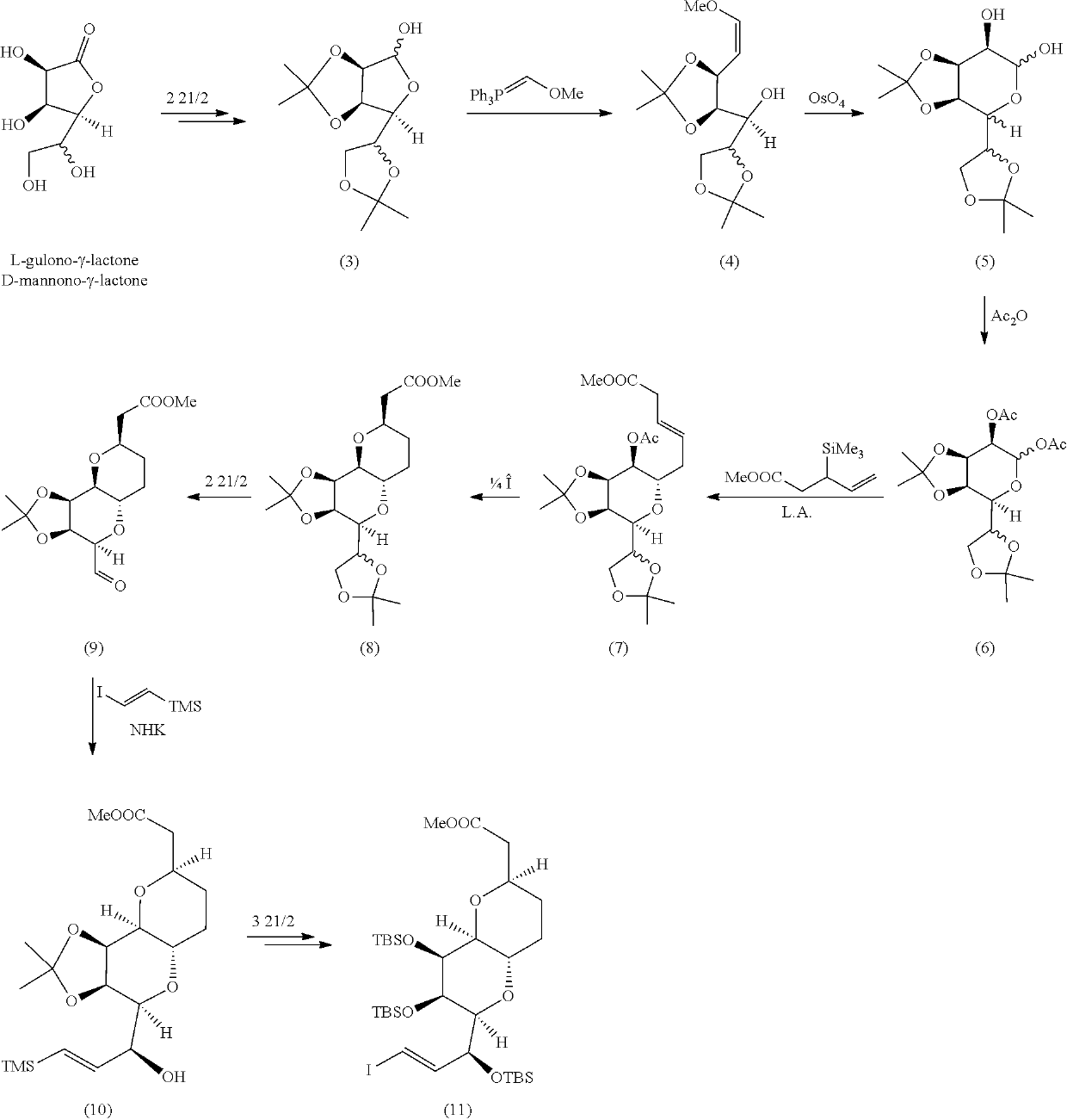Pyran fused ring compound, preparation method therefor and use thereof
a pyran fused and compound technology, applied in the field of organic synthesis, can solve the problems of difficult control of optical purity of the starting material, disadvantageous to cost control and labor protection, and long path, so as to reduce the risk of quality control of the product, increase the efficiency of synthesis, and be readily available
- Summary
- Abstract
- Description
- Claims
- Application Information
AI Technical Summary
Benefits of technology
Problems solved by technology
Method used
Image
Examples
example 1
on of Compound 26
[0143]
[0144]Under protection with argon gas, (E)-4-bromobut-2-en-1-ol (19 g, 0.126 mol) was dissolved in dry toluene, triphenyl phosphine (66 g, 0.25 mol) was added with stirring, heated at 60° C. to react. The reaction was completed after 3 hrs, stopped, filtered, washed with anhydrous ethyl ether, resulting in 40 g of the target compound 26, with a yield of 76%.
[0145]1H NMR (400 MHz, CDCl3) δ 7.78-7.65 (m, 15H), 6.03-5.98 (m, 1H), 5.66-5.61 (m, 1H), 4.49-4.44 (m, 2H), 3.99 (s, 1H), 3.94 (s, 2H).
example 2
on of Compound 28
[0146]2.1 Preparation of Compound 2-03
[0147]Under protection with argon gas, 2-01 (50 g, 0.18 mol) was dissolved in dry DCM (225 mL) at room temperature, isopropyl alcohol (57.5 mL) was added with stirring, and boron trifluoride ethylether (35 mL) was dropped slowly. The starting material disappeared 15 min after end of the addition and the reaction was stopped. The reactant was poured into an ice-cold aqueous sodium bicarbonate solution and stirred quickly for 15 min, extracted with DCM, dried and concentrated, obtaining 2-02. Dry methanol (1 L) was added into the resulting residue to dissolve, and water (125 mL) and triethyl amine (125 mL) were added with stirring. The resulting system was heated to 50° C. to react. After 3 hrs, the starting material disappeared and the reaction was stopped. The solvent was evaporated off and DCM was added to dissolve the residue. The resulting solution washed subsequently with water, dilute hydrogen chloride, and saturated sodium...
example 3
on of Compound 29
[0158]
[0159]Under protection with argon gas, phosphonium 26 (15.9 g, 3.8 mmol) was dissolved in dry THF (220 mL) and chilled at −78° C. t-BuOK (4.4 g, 3.9 mmol) was added batch wise and stirred for 40 min. The reaction solution became from colorless to deep red. Then the solution of the compound 28 / THF (10 g / 20 mL) was dropped slowly (lasting for about 1.3 h). About 1 h after completing addition, the reaction was quenched by adding the saturated aqueous NH4Cl solution. The resulting reaction mixture was extracted with ethyl acetate, subsequently washed with saturated NaHCO3, NaCl solutions, dried and concentrated. Ethyl ether / n-hexane (1:2) was added. The resulting mixture was stirred quickly and filtered. The filtrate was concentrated and separated on a column (PE:EA=10:1), resulting in 9.6 g of the compound 29, with a yield of 82%.
[0160]1H NMR (500 MHz, CDCl3) δ 6.60 (t, J=10 Hz, 1H), 6.18 (t, J=10 Hz, 1H), 5.88-5.82 (m, 1H), 5.34 (t, J=10 Hz, 1H), 4.86 (s, 1H), 4...
PUM
 Login to View More
Login to View More Abstract
Description
Claims
Application Information
 Login to View More
Login to View More - R&D
- Intellectual Property
- Life Sciences
- Materials
- Tech Scout
- Unparalleled Data Quality
- Higher Quality Content
- 60% Fewer Hallucinations
Browse by: Latest US Patents, China's latest patents, Technical Efficacy Thesaurus, Application Domain, Technology Topic, Popular Technical Reports.
© 2025 PatSnap. All rights reserved.Legal|Privacy policy|Modern Slavery Act Transparency Statement|Sitemap|About US| Contact US: help@patsnap.com



